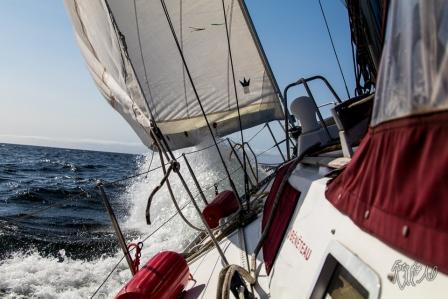The number one contributing factor to accidents on the water; operator inattention. I know paying attention seems like common sense, but I have not only seen said lack of attention, but have done it as well. When you think about how easy it is to get distracted driving a car, it makes sense how easy you can get distracted on a boat.
If you have never been on a boat, try setting the cruise control in your car to 7 mph on a wide open country road and travel for several hours. I promise you will get bored quickly. Traveling that slowly in the wide open of the water body you are in makes it easy to get involved in a conversation, mesmerized by the beauty around you, or even just dancing on deck to a good song. The problem is you forget to keep an eye on the 360 degrees of horizon around you.
I included improper lookout in here as well. The operator of a vessel is the first line lookout as well. If the person assigned the helm isn’t paying attention, there is no lookout. Even if autopilot is engaged, there should be someone assigned to the helm. Additionally, everyone on deck should also be assigned as a lookout. I have never had too many eyes on deck.
I solve this in my safety brief. As part of my regular safety brief, whoever is on the helm is responsible for being the primary lookout and not being distracted. Even if autopilot is going, they are still responsible for standing watch, this is made clear again when taking the helm. Also everyone is advised that they are secondary lookouts anytime they are on deck. If you see something, let the helm know. Unless they pointed it out, assume they didn’t see it. I once missed a boat that came out from behind a rock and was behind the sail until someone on deck pointed it out. Safety first; even before ego.

